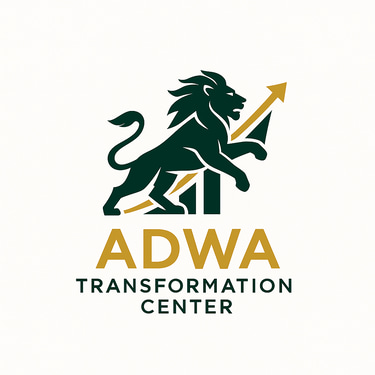Can Ethiopia Become the Next Asian Tiger? The Surprising Tax Secret to Capital Market Growth
They were dismissed as "developing economies." Now, they're roaring ahead. Can Ethiopia learn from the Asian Tigers and unleash its own economic miracle? The answer may lie in its tax code.. Investors are watching... but is Ethiopia listening? 👂 A critical tax reform could be the key to unlocking massive growth in its capital market. Discover what's at stake and how YOU can benefit.
ECONOMY AND STOCK MARKET
10/14/20245 min read
You didn’t come this far to stop


Malaysia, Kuala Lampur
Ethiopia's Ministry of Finance finds itself at a critical juncture. The Ethiopian Capital Market Authority (ECMA) is advocating for urgent tax reforms to stimulate the nation's nascent capital market, as highlighted in a recent Addis Fortune article. However, the Ministry is hesitant, citing concerns over potential revenue loss. This tension underscores a vital question: Can Ethiopia afford not to incentivize investment in its burgeoning stock market?
Dr. Abush Ayalew, a respected voice in Ethiopia's financial landscape, firmly believes that a supportive tax environment is essential for attracting investment and ensuring the success of the country's capital market. He points to the impressive growth of the "Asian Tigers" – economies like Malaysia and South Korea – as compelling evidence. These nations strategically employed tax incentives to fuel rapid economic expansion and establish thriving stock markets.
The Asian Tigers: A Case Study in Tax-Driven Growth
The Asian Tigers, comprising Hong Kong, Singapore, South Korea, and Taiwan, achieved remarkable economic growth in the late 20th century. Their success stories offer valuable lessons for Ethiopia as it seeks to develop its own capital market.
Malaysia: By exempting capital gains tax on listed shares and reducing corporate taxes, Malaysia witnessed a surge in investor confidence and market capitalization. The Kuala Lumpur Composite Index (KLCI), the benchmark stock index of the Malaysian stock exchange, has grown significantly over the past few decades, reflecting the positive impact of these tax reforms. This exemption led to increased market vibrancy, with more active trading and higher liquidity. The removal of the tax burden encouraged investors to buy and sell shares more freely, contributing to a more robust and efficient market. For example, Malaysia's market capitalization increased from approximately $70 billion in 1990 to over $400 billion in 2020, reflecting the positive impact of tax incentives on investor participation.
South Korea: A tax credit system for investments in venture companies and SMEs listed on the KOSDAQ, South Korea's secondary stock market for high-growth and technology companies, fueled innovation and spurred market growth. This contributed to the KOSDAQ's rise as a leading global technology exchange. The tax credits incentivized investment in smaller, riskier companies, increasing market depth and broadening the range of investment opportunities. This, in turn, made the market more resilient by reducing its reliance on a small number of large companies. South Korea's KOSDAQ index, launched in 1996, has grown from an initial level of 100 to over 1.000 number of listed companies, showcasing the success of targeted tax policies in promoting innovation and investment. These examples demonstrate the power of strategic tax incentives in fostering a thriving capital market.
Fueling Ethiopia's Capital Market: Why Tax Breaks Are Key to Unlocking Growth
In an exclusive interview with Adwa Finance Magazine, Dr. Ayalew outlines key tax reforms that Ethiopia should consider:
- Long-term Investment Incentives: Offer tax breaks for long-term stock market investments to encourage a savings culture and reduce speculative trading. This could include reducing or eliminating capital gains taxes for investments held for a specified period, such as five years or more.
- Capital Gains Tax Reduction: Lower capital gains taxes for listed companies to attract both domestic and foreign investors. This would make investing in Ethiopian companies more attractive and encourage greater participation in the stock market.
- Intitutional Investor Incentives: Provide tax incentives for institutional investors like pension funds to channel more capital into the market. This could include tax breaks on dividend income or capital gains earned from investments in listed companies.
- Diaspora Engagement: Attracting investment from the Ethiopian diaspora is crucial for the country's economic development. The government can incentivize diaspora investment by offering attractive tax benefits. These could include tax holidays on dividend income earned from investments in Ethiopian companies, reducing capital gains taxes on profits made from selling shares, and providing targeted tax credits for investments in specific sectors crucial for economic growth. By implementing these tax incentives, Ethiopia can tap into a significant source of both financial capital and valuable expertise within the diaspora, contributing to the nation's overall economic development.Addressing Concerns.
About Revenue Loss
While acknowledging the Ministry of Finance's concerns about potential revenue loss, Dr. Ayalew emphasizes the long-term benefits. A thriving stock market, he argues, will lead to increased investment, job creation, and corporate profits, ultimately generating higher tax revenues in the long run.
Dr. Ayalew's assertion that tax incentives can drive long-term economic growth and increase tax revenue is strongly supported by historical evidence. Take Malaysia, for example. By exempting capital gains tax on listed shares and lowering corporate taxes, they sparked a surge in investor confidence and market capitalization, leading to a more vibrant and liquid market. This, in turn, fueled economic growth and increased tax revenue. Similarly, South Korea's introduction of tax credits for investments in venture companies and SMEs listed on the KOSDAQ fostered innovation and attracted investment in high-growth sectors. The resulting expansion of the KOSDAQ and the overall stock market broadened the tax base and contributed to greater tax revenue for the government.
Even in Africa, we see this effect. Mauritius, with its attractive tax regime, including no capital gains tax and a low corporate tax rate, has become a leading financial center. Mauritius has strategically positioned itself as an attractive destination for investors by implementing tax-friendly policies. The country boasts no capital gains tax, allowing investors to keep all their profits from investments. Additionally, it has a low corporate tax rate of 15%, making it a desirable location for businesses to operate. These policies have been instrumental in establishing Mauritius as a leading financial center in Africa.
The benefits of these policies extend beyond attracting foreign investment. They have also contributed to the growth of various sectors within the country, including tourism, manufacturing, and information technology. This diversified economic growth has created job opportunities, increased incomes, and improved the overall standard of living in the above mentioned countries, he underlined.
Furthermore, the tax-friendly environment has fostered a culture of entrepreneurship and innovation, encouraging the development of new businesses and industries. This has further strengthened their economy and contributed to its resilience in the face of global economic challenges.
Key Takeaways
A supportive tax environment is crucial for the success of Ethiopia's capital market.
Lessons from the Asian Tigers and African success stories demonstrate the effectiveness of tax incentives in fueling market growth.
Ethiopia should consider implementing tax breaks for long-term investors, reducing capital gains taxes, and providing incentives for institutional investors and the diaspora.
While there may be short-term revenue implications, a thriving stock market will ultimately generate greater tax revenue and contribute to broader economic development.
The Path Forward
Ethiopia has a unique opportunity to leverage its upcoming stock market to drive economic growth and prosperity. By learning from successful models and implementing a well-designed tax incentive framework, the nation can create a more attractive investment environment, foster capital market growth, and unlock the potential of its citizens.
#Ethiopia #CapitalMarket #Investment #TaxPolicy #AsianTigers #EconomicGrowth #Finance #AdwaFinance


